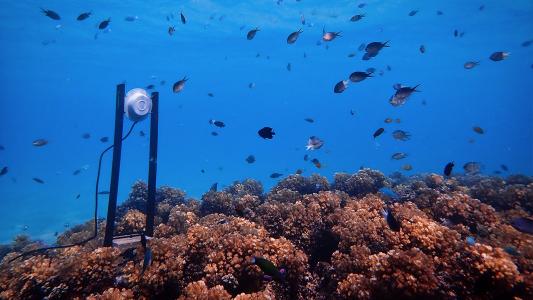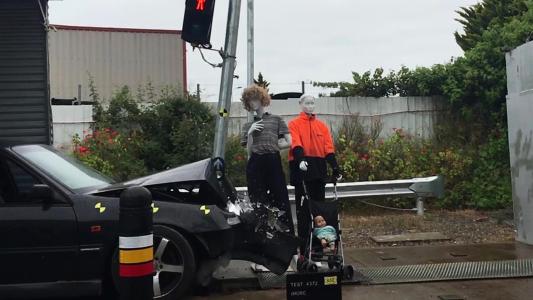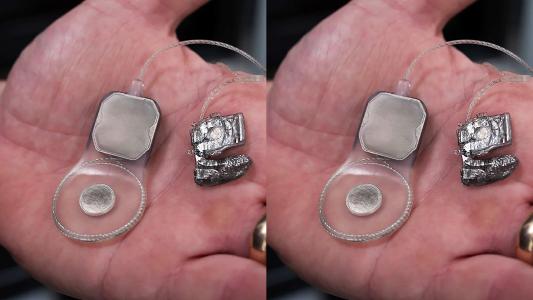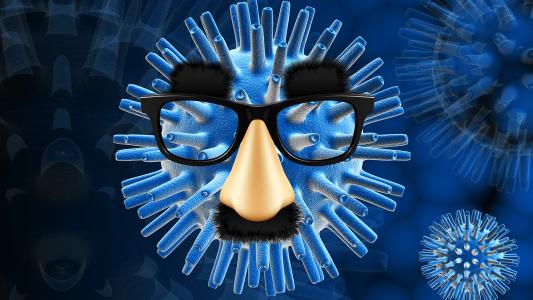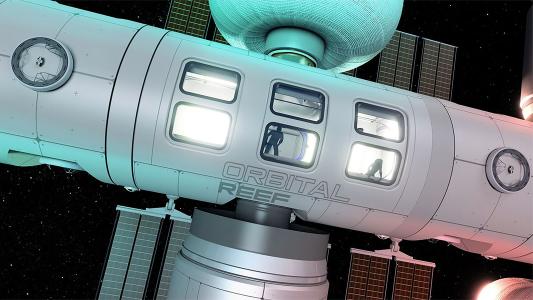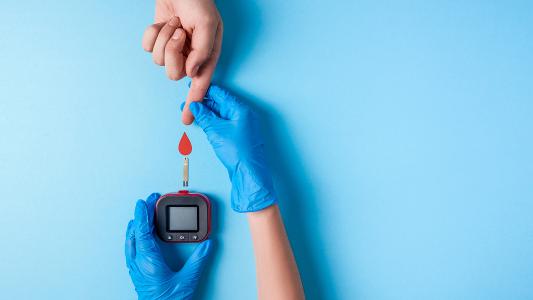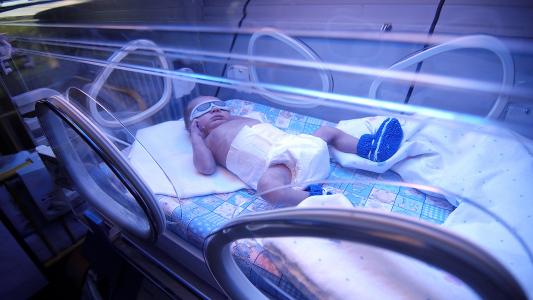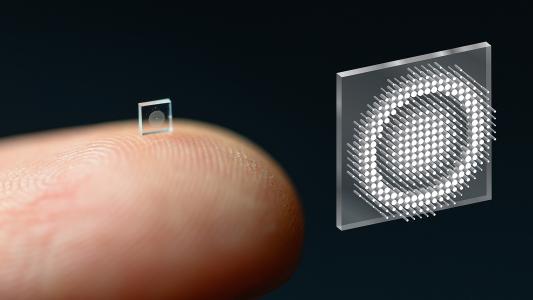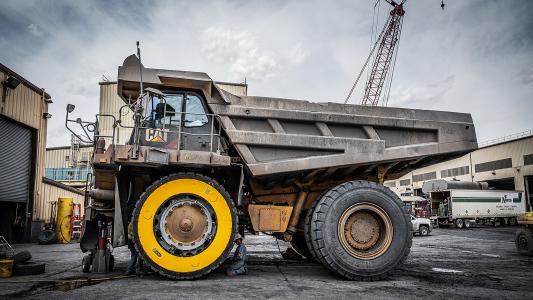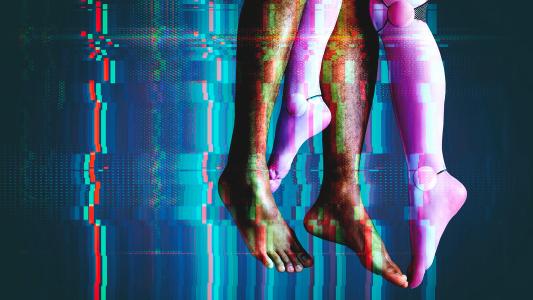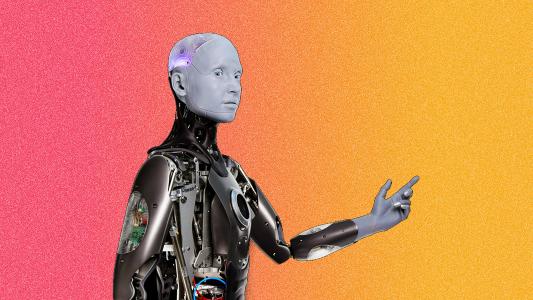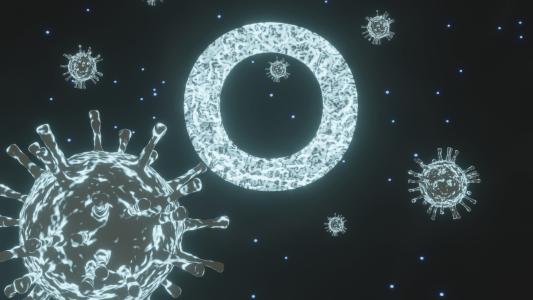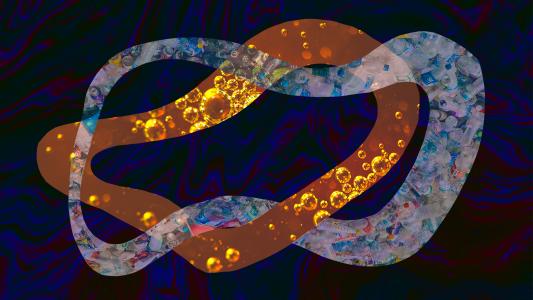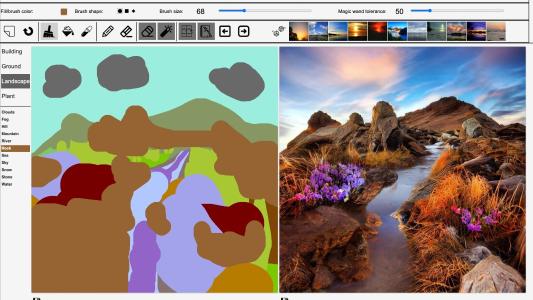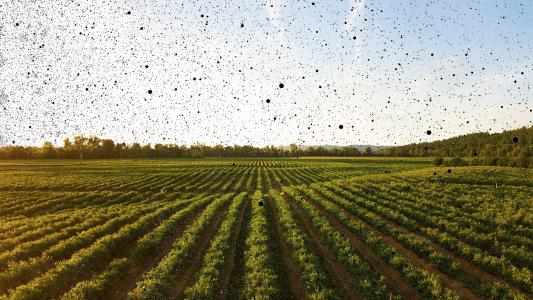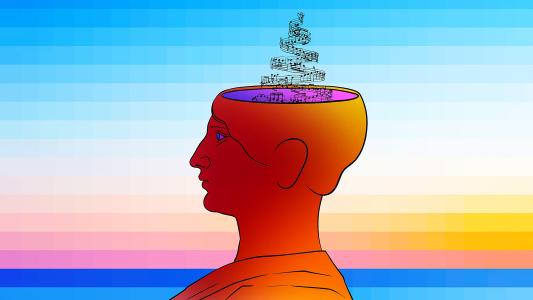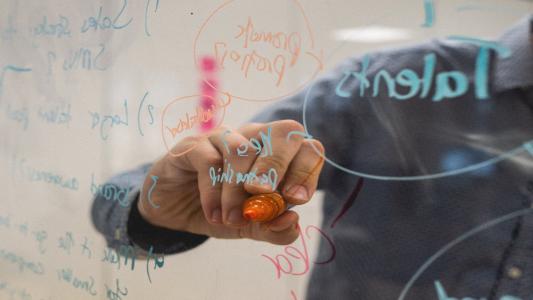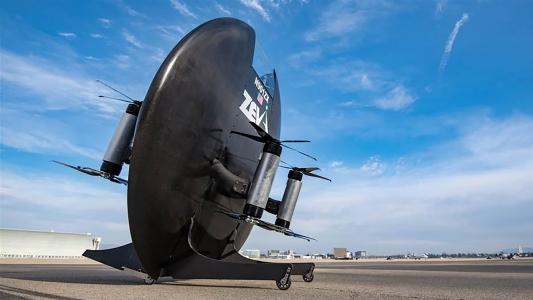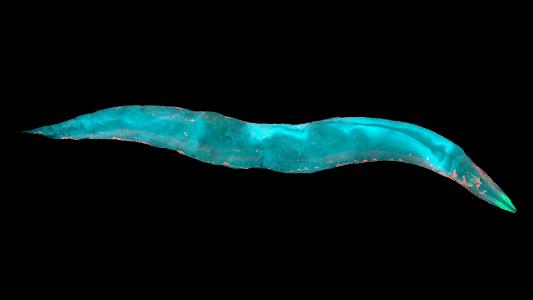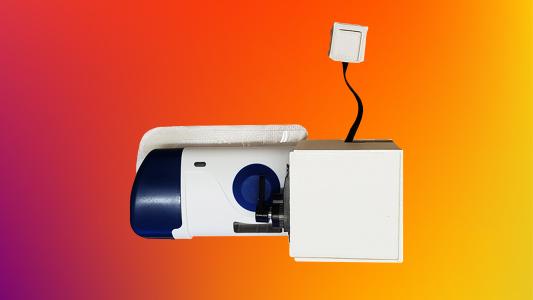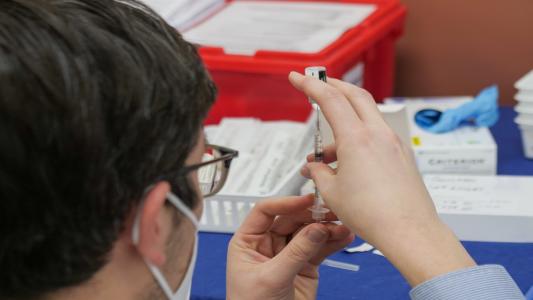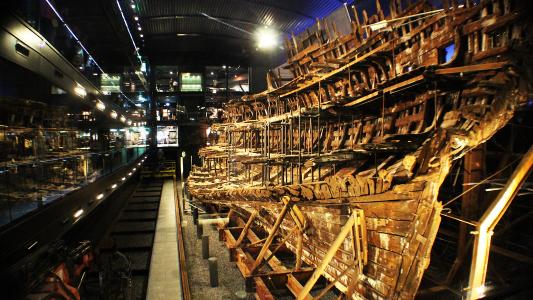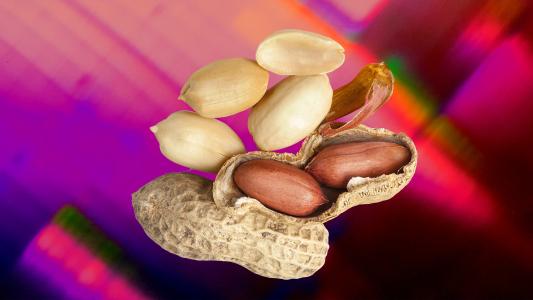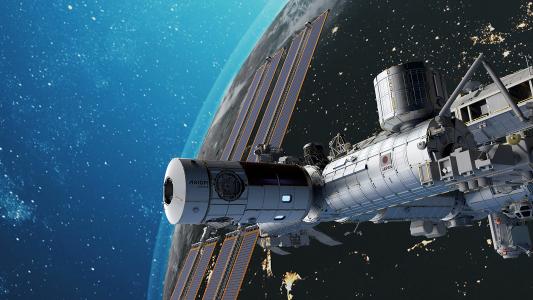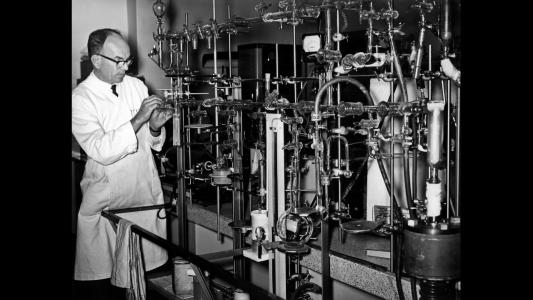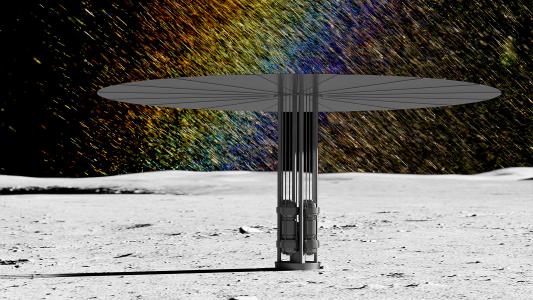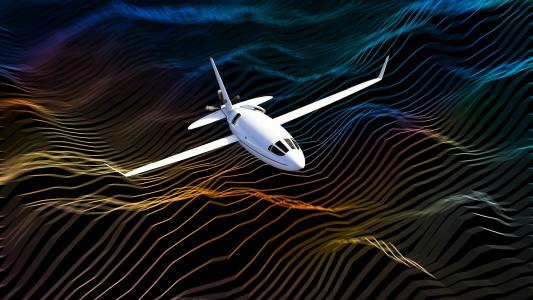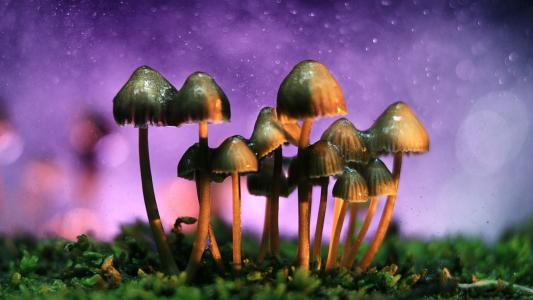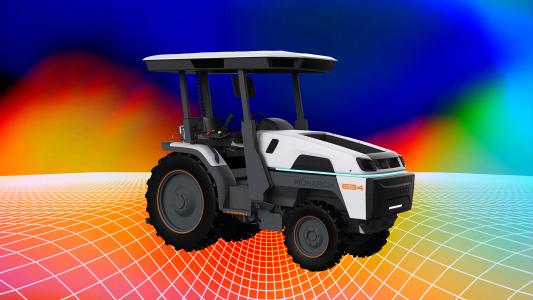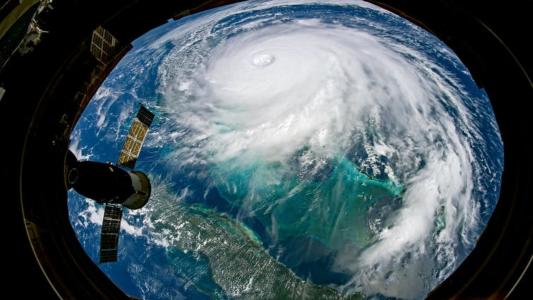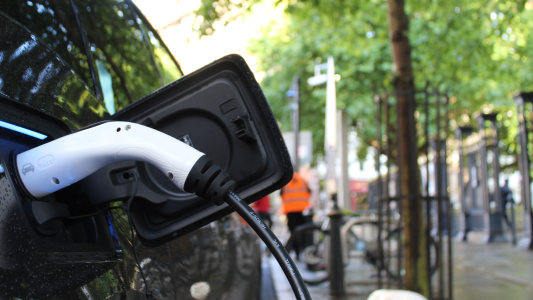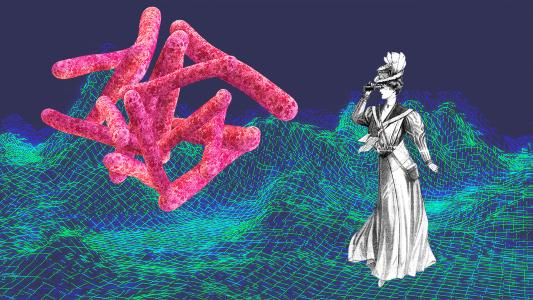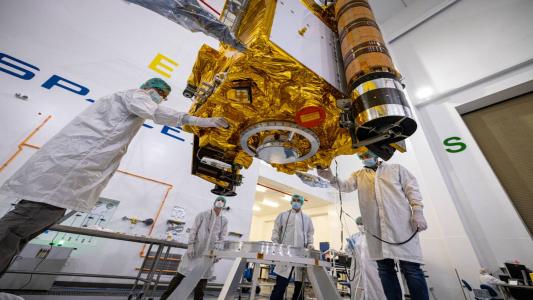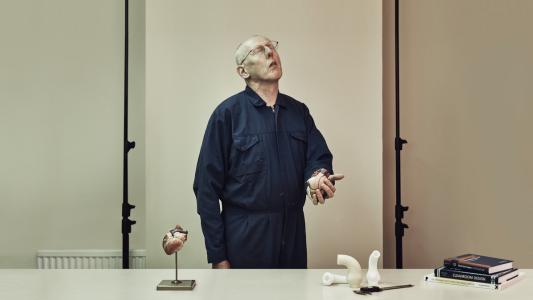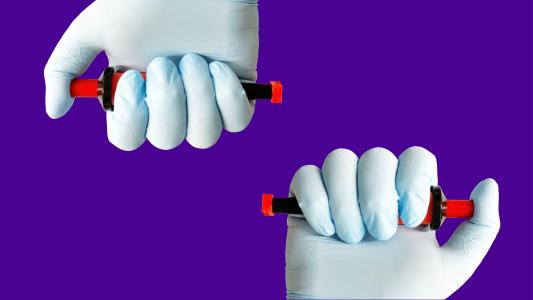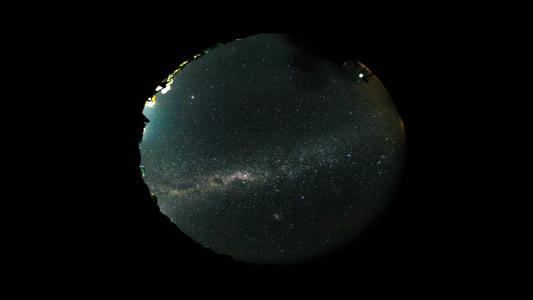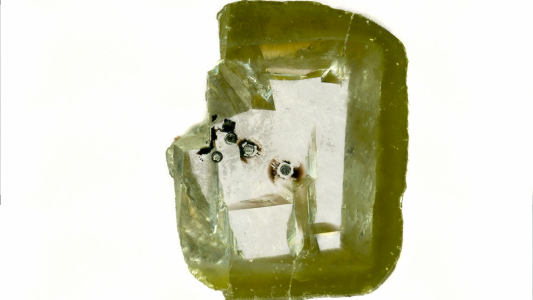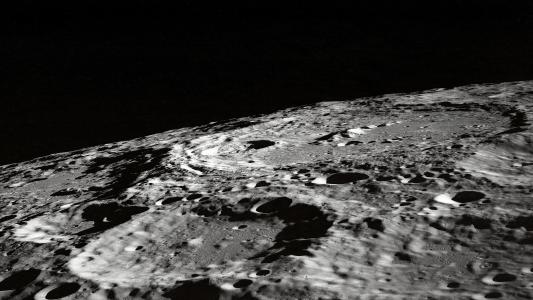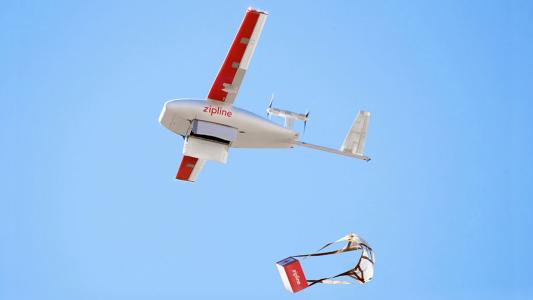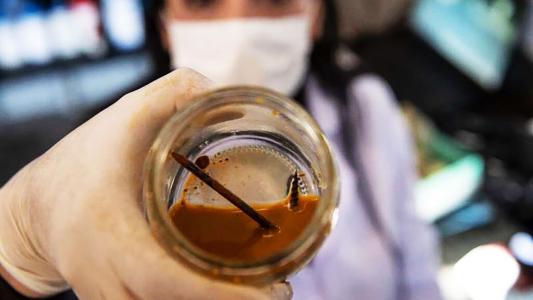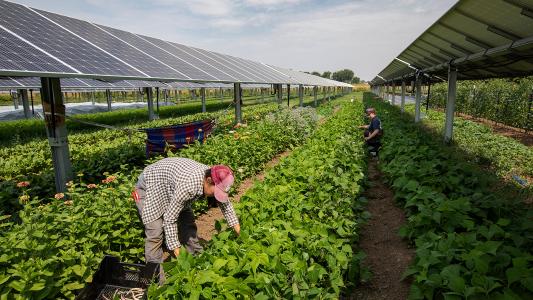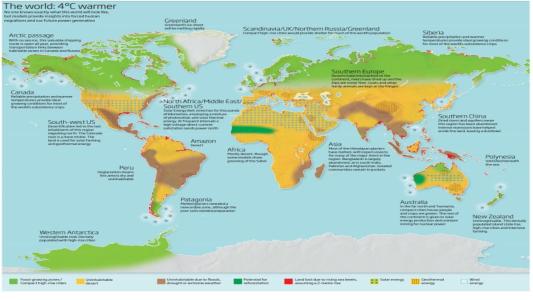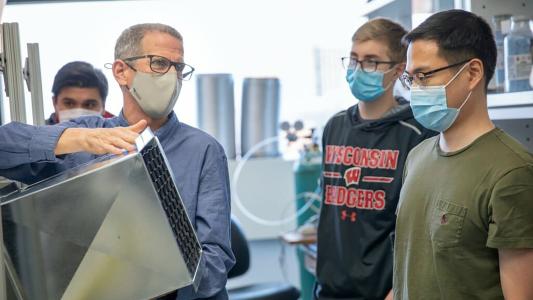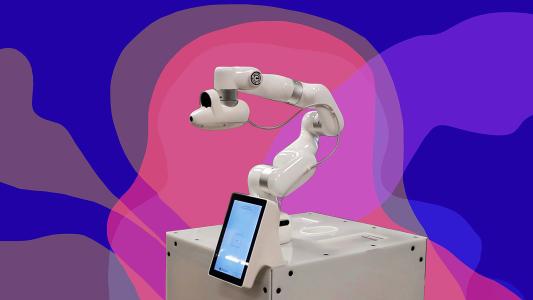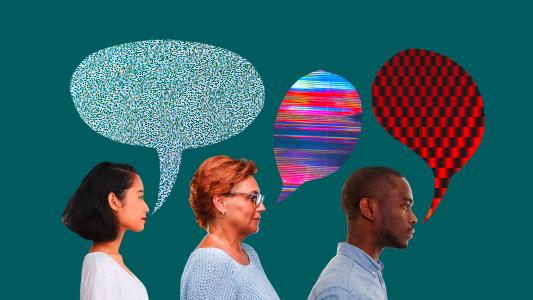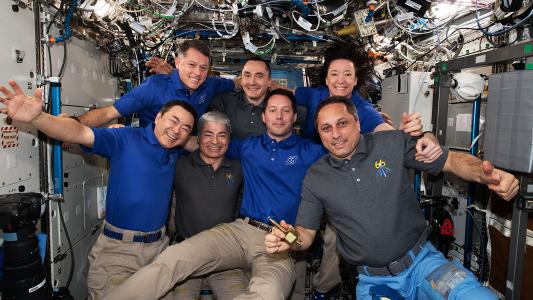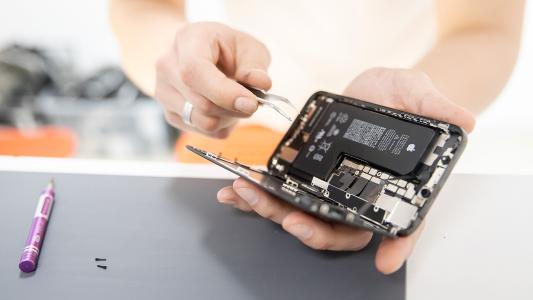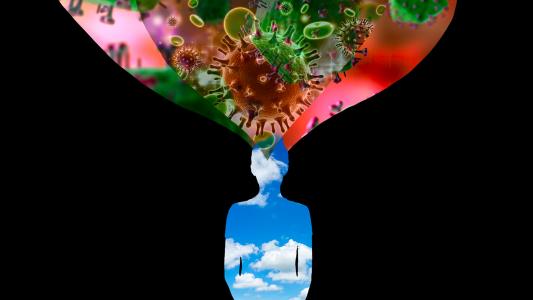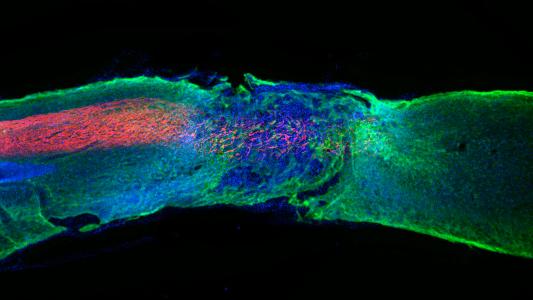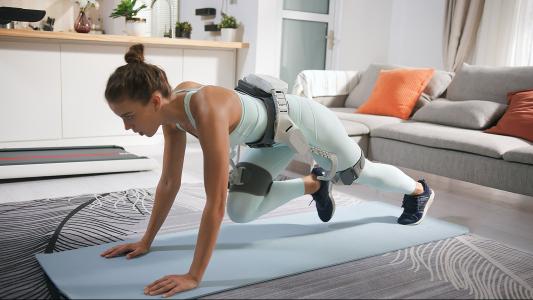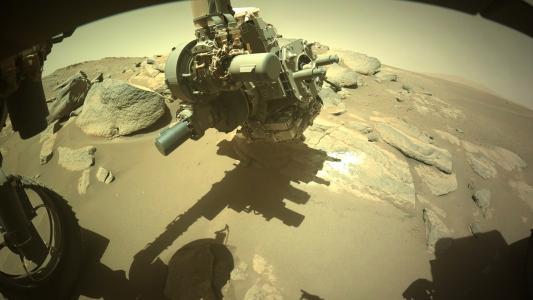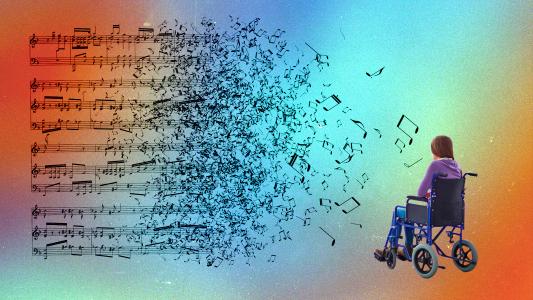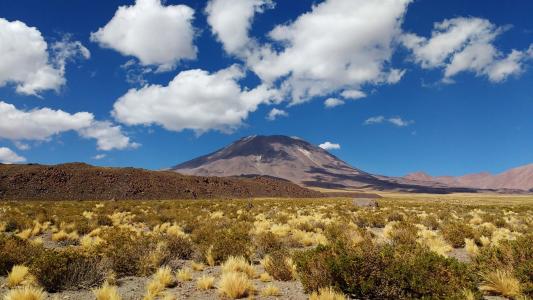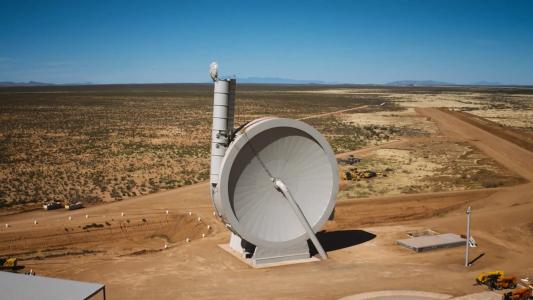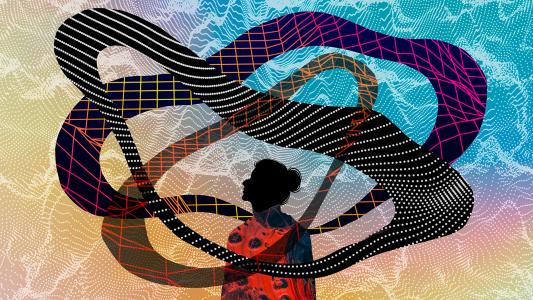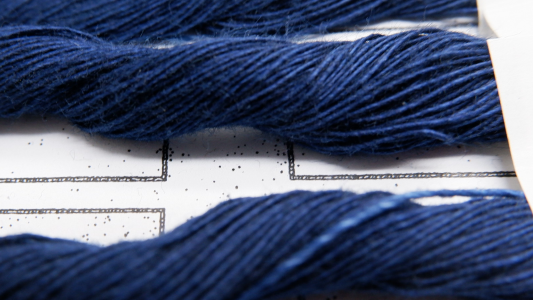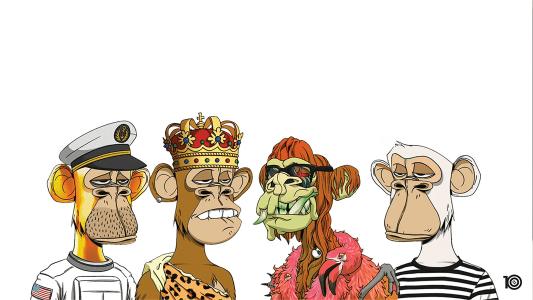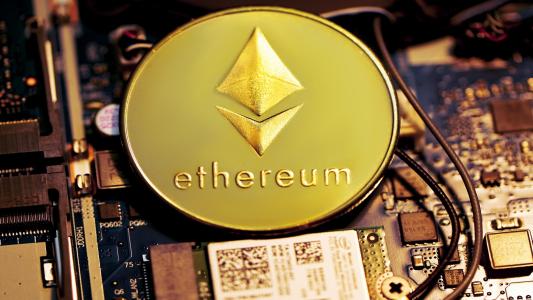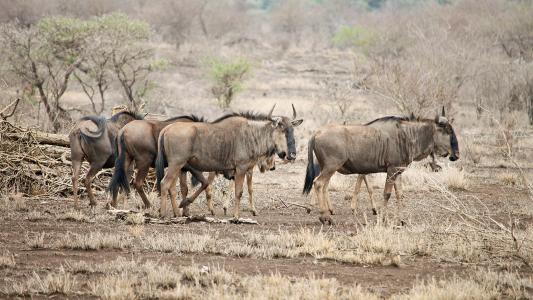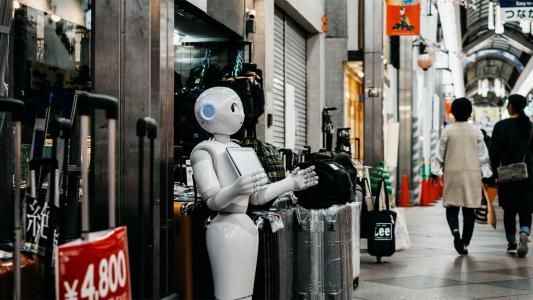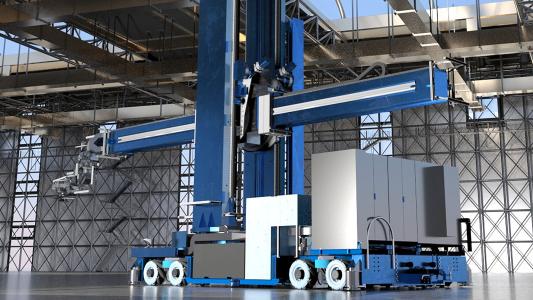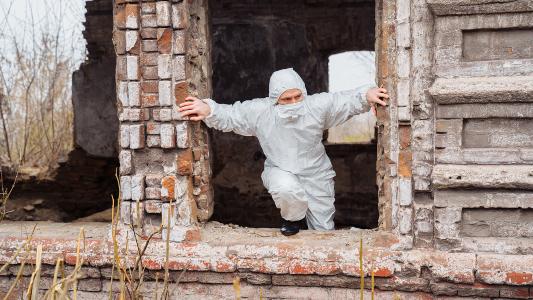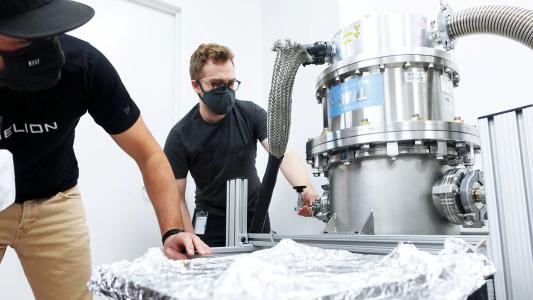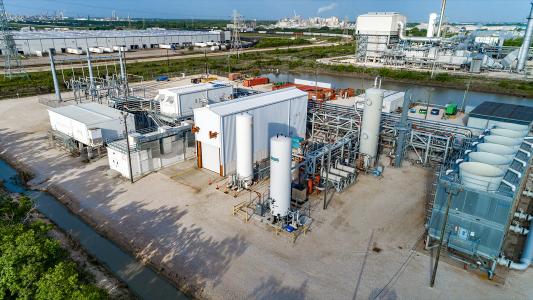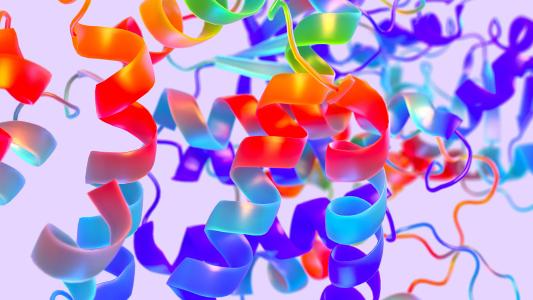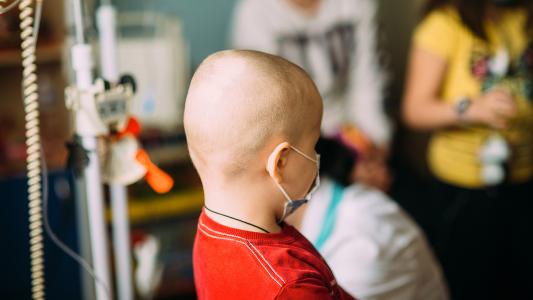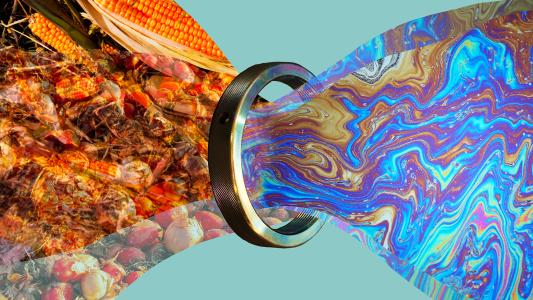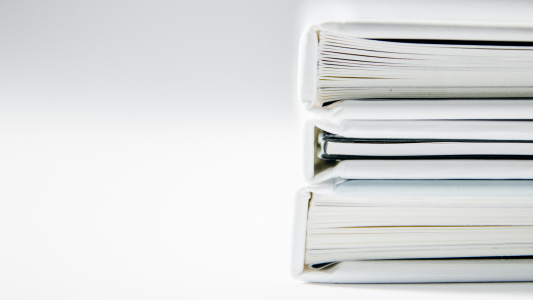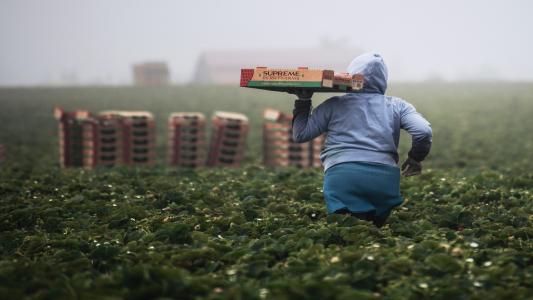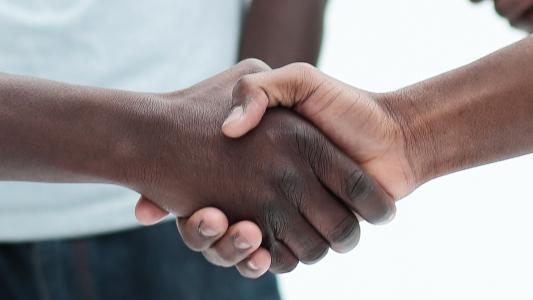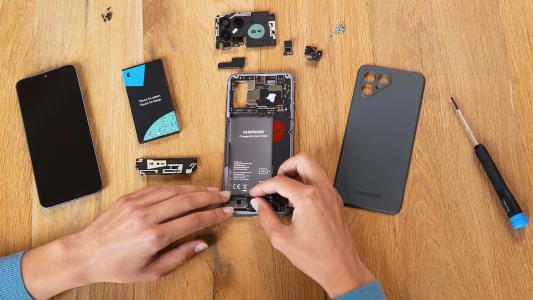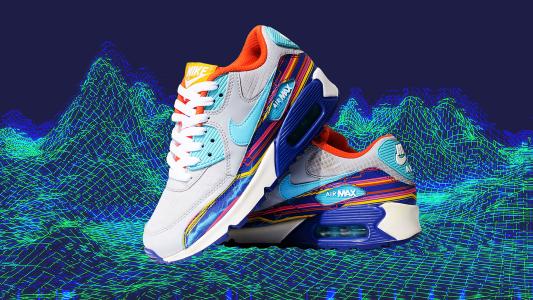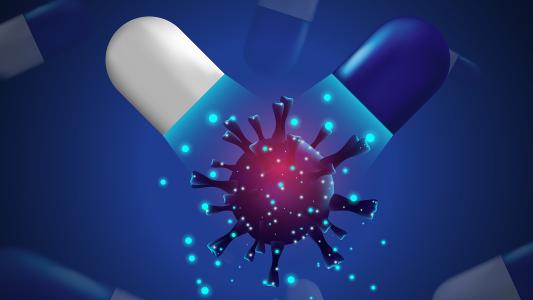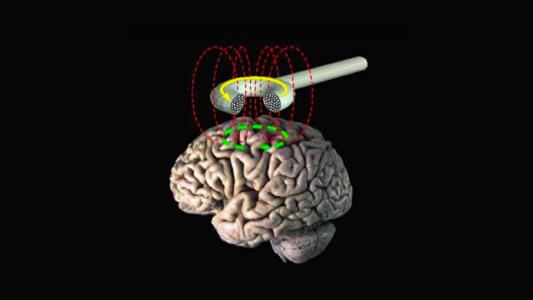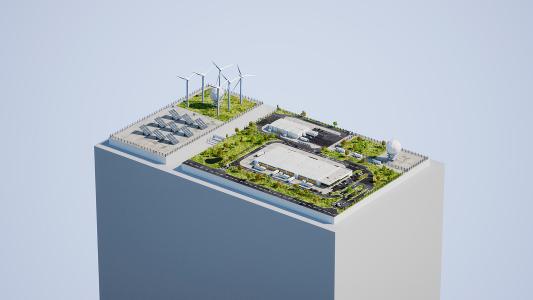Underwater speakers draw fish to restore coral reefs
Reef restoration researchers found that fish were more inclined to settle near new reefs if they sounded like they were already thriving.
Falling traffic lights can kill. One tweak could save lives.
An impact-absorbing traffic light pole could save the lives of drivers and pedestrians, while also cutting repair and replacement costs.
A chemical in grape seeds extends lives of mice by 9%
A chemical in grape seeds extended the lives of old mice, made young ones healthier, and helped chemo drugs shrink tumors in a new study.
Experimental bionic eye is ready for human trials
An experimental bionic eye designed to help restore vision in people with retinal degeneration is ready for human trials.
How herpes hides
Herpesvirus hides in nerve cells, making it impossible to kill. Now, Northwestern researchers believe they have found the novel key to this nasty trick.
What comes after the ISS?
NASA is investing more than $400 million to help private companies develop space stations that could one day replace the ISS.
First person cured of type 1 diabetes thanks to stem cells
An experimental stem cell treatment has eliminated type 1 diabetes in a patient, giving experts guarded hope for a diabetes cure.
A simple webcam can automatically catch — and treat — infant jaundice
Researchers in Australia and Iraq have developed a system that uses a webcam to catch infant jaundice and begin treatment right away.
New salt-grain sized micro camera takes images on par with a full size camera’s
Researchers have created a salt-grain sized micro camera capable of taking images almost on par with a regular camera.
Goodbye, rubber. These new steel tires last a lifetime.
An Arizona-based startup called Global Air Cylinder Wheels (GACW) invented a steel tire that eliminates the need for polluting rubber tires.
What’s so wrong about sexbots?
These sexbots remember that you are 32 years old, and you like sushi, except on Thursdays — and they can teach us a lot about coexisting with AI.
Humanoid robots are waking up — and they look eerily real
Engineered Arts, a robotics firm located in the United Kingdom, released a video showing a humanoid robot that looks exceptionally lifelike.
AI artist Botto has made its first million
AI artist Botto, which hones its taste via a human community, has made a splash in the art market, going from NFTs to Miami.
Is Omicron the COVID variant we have been waiting for?
There is no rule that will force Omicron or another COVID variant to become less deadly over time, but there is reason for hope.
Luminescent materials could cool our cities and light the streets
Luminescent materials could be used to cool our cities, and simultaneously cut down on electricity.
There's a ton of wind power in the deep sea. Let's go get it.
The most powerful winds can be found over the deep, open ocean. Floating wind turbines could tap into this and 100x our wind energy.
New tech “upcycles” junk plastic, reducing its carbon footprint
A chemicals and aircraft parts manufacturer has created a new method for converting low-grade plastic waste into oil, which they can turn into high-quality plastic.
Rock dust can turn farmland into a sponge for greenhouse gases
Spreading rock dust over large areas of farmland could cause the soil to absorb considerably more carbon from the air, while improving crop yields — a process called mineral weathering.
How music can rewire the brain after an injury
MedRhythms, an experimental digital therapy combines sensors and music to help people with Parkinson's disease walk.
How should we measure innovation?
Researchers have come up with a new method for measuring the impact of an innovation.
VR shows parents what will happen in their baby’s surgery
A U.K. hospital is using VR to help parents see the potential impact skull-reshaping surgery could have on their baby’s appearance.
Is this one-seat flying saucer the future of flight?
Startup ZEVA Aero’s vision for the future of eVTOLs is a one-person flying saucer-shaped vehicle that travels 160 miles per hour.
AI can translate normal written text to code
Codex, from OpenAI, can turn normal, conversational commands into programming, taking text to code.
Genetically modified worms sniff out cancer in urine
Genetically modified worms that react to the scent of cancer in urine could one day be used for routine pancreatic cancer screening.
This device can automatically detect and reverse opioid overdoses
Researchers at the University of Washington have developed an AI-powered wearable to detect, and reverse via naloxone injection, opioid overdoses.
The science behind “anti-aging” diets
A recent study reviewed the efficacy of popular diets that claim to have anti-aging benefits.
How the new coronavirus variant was found and what we know so far
Omicron is a new 'variant of concern' but there's still so much about it that we don't know.
X-rays may save Henry VIII’s resurrected warship, the last of its kind
Henry VIII’s favorite warship survived centuries under the sea. New x-ray scanning technology will hopefully help preserve the Mary Rose for centuries more.
This near-Earth asteroid may be a chunk knocked off of the moon
A near-Earth asteroid discovered in 2016 may have once been part of the moon — making it unlike any space rock we’ve ever discovered.
A patch to treat peanut allergies appears safe to wear for years
A peanut allergy can be debilitating at best, and life threatening at worst. A new possible treatment looks to be safe to wear for at least three years.
First commercial mission to the ISS prepares for launch
Private astronauts will have a chance to conduct microgravity research on the International Space Station during Axiom Space’s Ax-1 mission.
7 scientists we are thankful for this Thanksgiving
One of these scientists saved more lives than any other person in history.
NASA plans to put a nuclear reactor on the moon by 2031
NASA and the Department of Energy are asking U.S. companies for help putting a nuclear reactor on the moon by 2031.
Bullet-shaped plane promises to slash air travel costs
Otto Aviation has finished phase 1 flight testing of its Celera 500L, a highly efficient airplane that could cut the cost of air travel.
Psychedelics can change how you think about the universe
A new study finds that a single trip on a psychedelic can cause lasting changes in a person's metaphysical beliefs.
Self-driving electric tractor startup to boost production eight-fold
California startup Monarch Tractor has raised $61 million to increase production of its self-driving electric tractor.
The science of climate change in 6 charts
Here's what the science says about climate change — and a few reasons to be optimistic.
Will battery recycling be ready when all these new EV batteries die?
The growing usage of lithium-ion batteries, particularly in vehicles, is outpacing the technology to recycle them. But researchers and innovators are scrambling to find an effective and eco-friendly battery recycling technique.
Tuberculosis may spread through aerosols, without coughing
University of Cape Town researchers believe tuberculosis may spread in small aerosols, much like COVID-19.
Can CRISPR keep the beer flowing?
Researchers are turning to CRISPR to create barley better able to remain dormant in climate change — while being still ready to make beer.
NASA’s DART mission will move an asteroid (Updated)
If a giant asteroid were to slam into Earth, well, we’d be in trouble. That’s why NASA is launching DART, the world’s first planetary defense mission.
This engineer fixed his own heart
When Tal Golesworthy was told he was at risk of his aorta bursting, he wasn’t impressed with the surgery on offer – so he came up with his own idea.
How a BBQ lighter can make DNA vaccines more powerful
Georgia Tech researchers turned a BBQ lighter into a delivery system that uses electricity to boost the potency of DNA vaccines.
How a powerful telescope found a tiny black hole
Astronomers just discovered a black hole of a mass comparable to the Sun.It is small and not so far away, which opens the window to new discoveries.
Scientists discover a new mineral from the depths of the Earth
Scientists have discovered a new mineral that has never been seen before. The unearthed mineral was trapped inside the diamond.
94% of the universe’s galaxies are permanently beyond our reach
Today, most of the universe's galaxies are already receding faster than the speed of light.
The Moon has enough oxygen to sustain 8 billion people for 100,000 years
A Belgium startup expects to send their technology to the Moon by 2025 to improve the process of making oxygen via electrolysis.
See the surface of the sun evolve in stunning time lapse
A stunning time lapse of the surface of the sun created using NASA images shows the activity that occurs over the course of just one month.
Delivery drones are now dropping off packages for Walmart
Walmart is now using Zipline delivery drones to get products to customers in Arkansas, previewing the future of on-demand delivery.
Metal-eating bacteria could clean up dirty mining sites
A unique metal-chomping microorganism ate through a nail in just three days. Now they might be tasked with an enormous mission: cleaning up mining waste.
The “great resignation” is a trend that began before the pandemic – and it may be the new normal
The current resignation behavior may seem like a new trend, data shows employee turnover has been rising steadily for the past decade.
Traditional colleges are recognizing Google career certificates
Google career certificates are now being accepted for college credit at some universities, helping students obtain degrees more cheaply.
Agrivoltaics let farmland serve double duty
Agrivoltaics combines farming with renewable energy, using the shade of solar panels to help plants thrive in a changing climate.
Here’s what the world will look like 4°C warmer
This map, which shows some of the effects a 4°C rise in average temperature could have on the planet.
Students get $5 million from Elon Musk for carbon-removal ideas
An Elon Musk-funded XPrize competition has given teams of students $5 million to develop ideas for carbon removal systems.
Vaccine robot administers doses without needles or human help
Canadian startup Cobioni has built a vaccine robot that can deliver a dose into a patient’s arm without a needle or any human help.
Startup breaks through “accent barrier” with real-time translator
Three Stanford students have launched Sanas, a startup developing the world’s first real-time speech accent translator.
Russian satellite strike creates huge cloud of space debris
A Russian anti-satellite weapons test threatened the safety of ISS astronauts by adding more space debris to Earth’s orbit.
Apple finally agrees you have a right to repair its tech
In a reversal of its previous stance on the right to repair, Apple is now giving customers access to parts and tools for DIY repairs.
Electric cars could one day power your house – here’s how to make it happen
Electric cars could power millions of households by plugging their battery power back into the grid instead of being stored.
Second patient clears own body of HIV, hinting cure is possible
Two “elite controllers” that no longer have any replicable HIV virus in their bodies may hold the key to a cure for HIV.
“Dancing” molecules repair spinal cord injuries in paralyzed mice
A treatment for spinal cord injuries was able to reverse paralysis in mice by “dancing” to connect with cells near the site of the injury.
Immersive technology will revolutionize our daily life
Extended reality technologies are quickly becoming better and cheaper, suggesting they may soon become part of daily life.
Powered exoskeletons may be the ultimate fitness machines
Enhanced Robotics is selling a powered exoskeleton to help people achieve their fitness goals, and it doesn’t cost thousands of dollars.
Perseverance is collecting more rock samples from Mars
NASA’s Perseverance rover is on the hunt for its next samples from Mars, scraping away a small circle of rock to see beneath its surface.
Wearable robot helps people with paralysis sing
Seoul National University researchers have built a wearable robot that helps people with spinal cord injuries breathe, cough, and sing.
Speech impairments aren’t a problem for Google’s new voice app
Google’s Project Relate app makes it easier for people with speech impairments to communicate and use speech-recognition tech.
10 surprising things we’ve learned about death
Modern science has demystified death by divulging its biological processes, but many questions remain.
The shift to remote work is helping solve the housing shortage
Converting empty office buildings into apartment units through “adaptive reuse” is helping address the housing shortage.
Survival genes from the world’s harshest desert environment could save our crops
Researchers have discovered genes linked to plant survival in Chile's Atacama Desert, one of the world's harshest desert environments.
The future of space launches: a giant spinning arm in a vacuum
SpinLaunch has tested a new approach to satellite launches that flings the objects into space, rather than blasting them up with rockets.
Fashion, art, and games: here’s what a decentralized metaverse could mean
The idea of the metaverse has gone from the realm of science fiction to the latest business model of major companies from Facebook to Nike.
AI reveals that the Sahara actually has 1.8 billion trees and shrubs
AI analysis of satellite images sees trees and shrubs where human eyes can't.
Denim is a dirty business, but biotech bacteria are cleaning it up
The indigo dye in denim is problematic because it is derived from petroleum. But a new startup is cultivating bacteria that generate the same iconic blue, without the need for hazardous chemicals.
Are mini reactors the future of clean energy?
The U.K is giving Rolls-Royce nearly $300 million to develop small modular reactors (SMRs) to increase its supply of clean energy.
Apes and NFTs run the first metaverse music group
Universal Music Group has just "signed" KINGSHIP, a band of four NFTs of Bored Apes and Mutant Apes, destined to perform in the metaverse.
A decentralized web 3.0 could lead to more innovation and privacy controls
When middlemen are removed, whole new business models and innovations can emerge.
Psilocybin treatment relieves depression in largest trial yet
The largest psilocybin treatment trial to date suggests that the psychedelic drug can help people with treatment-resistant depression.
Moving endangered species could save them — or turn them into invasive species
As climate change destroys ecosystems, some scientists propose helping animals pack up their bags and move to more hospitable parts of the world. But helping animals migrate is a complicated and fraught task. Now, some scientists want to lay the ground rules for assisted colonization, before the animals become refugees.
It’s hard to give AI common sense, but we’re making progress
There's still no telling whether machine-learned common sense is five years away, or 50.
The world’s biggest industrial robot lasers off airplane paint
Dutch company Xyrec recently demonstrated a 67-ton industrial robot that uses lasers to quickly strip paint from aircraft.
Deal brings COVID-19 vaccines into conflict zones
The U.S. has brokered a deal between Johnson & Johnson and the COVAX initiative to get COVID-19 vaccines to people in conflict zones.
Nuclear fusion would change the world. Has its time arrived?
Energy startup Helion claims it will generate electricity from a nuclear fusion device by 2024 — a milestone that could transform the world.
Zero-emission natural gas power plants are coming to US, UK
Net Power has designed a new kind of natural gas power plant that can efficiently capture almost all of the carbon dioxide it generates.
Free WiFi in apartment buildings helps close the digital divide
The EducationSuperHighway nonprofit plans to narrow the digital divide in America by deploying free WiFi networks in apartment buildings.
DeepMind’s AI lights path to faster drug development
Alphabet has announced the launch of Isomorphic Labs, an AI-driven drug discovery company built on research from its DeepMind subsidiary.
Just $50 can turn your phone into a powerful chemical, pathogen detector
If this becomes a common feature of smartphones, it could someday allow anyone to identify pathogens and detect impurities in food.
Can testicular tissue restore childhood cancer survivors’ fertility?
A procedure that used frozen testicular tissue to restore fertility in animals could soon do the same for childhood cancer survivors.
This machine can turn agricultural waste into fuel
Dumping and burning agricultural waste causes pollution and contributes to climate change. An India-based startup called Takachar promises to turn the problem into profits.
Free database to 107 million research papers released online
The General Index is a searchable database of keywords and brief sentences from publications that anyone may use to navigate scientific knowledge locked behind paywalls.
We need to rethink global food production to have a shot at our climate goals
Emissions from food alone could use up all of our budget for 1.5°C or 2°C – but we have opportunities to avoid this.
Philly Truce app aims to be the Uber of violence prevention
The violence prevention app Philly Truce connects people in personal conflicts with volunteer mediators trained to resolve them.
You can repair this sustainable phone yourself
Fairphone’s sustainable phone is easy to repair and contains ethically sourced materials — two major departures from the industry standard.
Nike is betting you'll want to wear Air Jordans in the metaverse
Nike is laying the groundwork to begin selling digital goods in the metaverse, joining what could soon be a multibillion dollar economy.
Climate transparency is about to get real with this independent database
A new independent database uses satellite data and AI to track global greenhouse gas emissions in near real-time, boosting climate transparency.
Pfizer’s antiviral pill cuts COVID-19 hospitalization, death by 89%
Pfizer’s antiviral pill to treat COVID-19 cut the risk of hospitalization or death by 89%, according to early results from a phase 2/3 trial.
Scientists relieve depression with magnetic brain stimulation
Researchers at Stanford University believe they've developed an effective and quick-acting technique to treat challenging cases of depression — using magnetic brain stimulation.
Data centers need to be greener — Microsoft is leading the way
Microsoft’s plan for sustainable data centers includes more renewable energy, better temperature control, and new construction materials.
Climate tech is booming — and this is better news than COP26
It’s estimated that 65% of emissions reductions can be achieved by existing technologies. The other 35% will need to come from tech breakthroughs.
